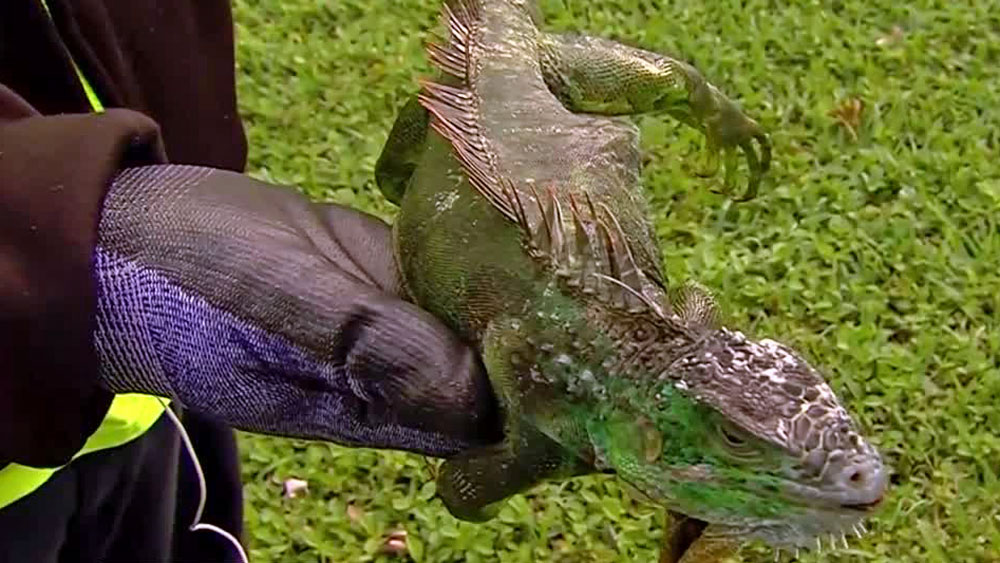For the next couple of days, no one can blame you for constantly looking up at the sky.
Overnight and morning temperatures are in the 40s and 30s in some places, which means you have to be on the lookout for falling iguanas.
RELATED: First Alert Weather Forecast
"They don't self regulate their body temperature, so their body temperature eventually kind of acclimates to what it is outside," said Blake Wilkins with Redline Iguana Removal.
Wilkins said iguanas get stunned by the cold, stiffen up, and eventually fall from their perches.
“They are aware of what’s happening to them they just aren’t able to move,” says Emily Maple of the Palm Beach Zoo. “They’re kind of stuck in place like the tin man they can’t move, they’ll slow their breathing down very slow and some cases they’ll fall out of trees.”
Maple says they can also injure themselves when falling and usually only about half manage to survive cold spells.
“He took a crack at climbing a tree it didn’t go well so I pulled him off the tree set him out in the yard,” said Hank Epton who found a groggy iguana warming in the sun in front of his suburban Lake Worth home.
Iguanas are not native to Florida and are considered invasive and destructive by the state. “Typically they will burrow to nest so occasionally you’ll see them doing that laying eggs,” Maple says.
Iguanas also have a taste for many tropical plants and flowers. Florida Fish and Wildlife does allow killing iguanas humanely.
Jan 21 - This isn't something we usually forecast, but don't be surprised if you see Iguanas falling from the trees tonight as lows drop into the 30s and 40s. Brrrr! #flwx #miami pic.twitter.com/rsbzNMgO01
— NWS Miami (@NWSMiami) January 21, 2020
Photos surfaced Wednesday morning across South Florida of the cold-stunned iguanas.
WPTV viewer Jack Fullerton spotted one frozen lizard hanging upside down in the Flamingo Park area of West Palm Beach.
🦎🥶️ FROZEN IGUANA! Check out this picture of a frozen iguana hanging upside down in the Flamingo Park area of West Palm Beach: https://t.co/vFxaBNlqCh
— WPTV (@WPTV) January 22, 2020
📸 WPTV viewer Jack Fullerton pic.twitter.com/6ZGIR5EAQc
Wilkins said the worst he's seen in terms of iguanas falling out of trees was in 2018.
"Definitely there were residents waking up to them next to their pool or falling on the ground stiff," Wilkins said.
Even the National Weather Service in Miami put out an advisory Tuesday to be on the lookout for falling iguanas.
"If you do happen to come across one, if it's frozen normally, we've seen they're not actually dead," said Wilkins. "It may take couple nights like this for them to die."









